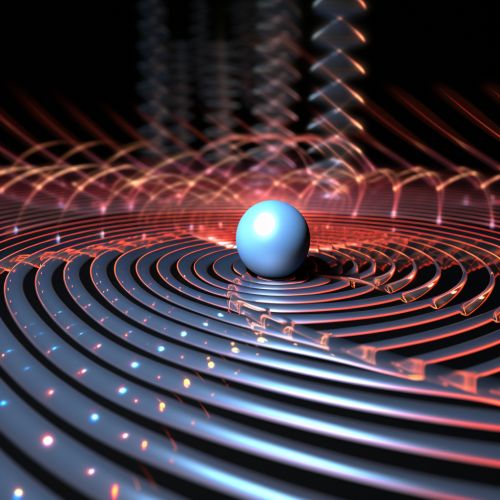Landau quantization
Introduction
Landau quantization is a quantum mechanical phenomenon that arises when charged particles interact with a uniform magnetic field. It was first discovered by the Soviet physicist Lev Davidovich Landau in 1930. The phenomenon is a direct consequence of the quantum mechanical nature of particles and the magnetic field's influence on their motion.


Theoretical Background
The theoretical basis for Landau quantization lies in the Schrödinger equation, the fundamental equation of quantum mechanics. When a charged particle, such as an electron, is placed in a magnetic field, the Schrödinger equation can be solved to reveal that the energy levels of the particle are quantized. This means that the particle can only occupy certain discrete energy levels, a stark contrast to classical mechanics where energy levels can vary continuously.
Landau Levels
The discrete energy levels that arise due to Landau quantization are known as Landau levels. Each Landau level corresponds to a different quantum state that the particle can occupy. The energy of each Landau level is directly proportional to the strength of the magnetic field and the charge of the particle. This relationship is given by the formula:
E_n = (n + 1/2)ħω_c
where E_n is the energy of the nth Landau level, n is a non-negative integer representing the level number, ħ is the reduced Planck constant, and ω_c is the cyclotron frequency.
Cyclotron Frequency
The cyclotron frequency, ω_c, is a key parameter in Landau quantization. It is the frequency at which a charged particle orbits in a magnetic field due to the Lorentz force. The cyclotron frequency is given by the formula:
ω_c = qB/m
where q is the charge of the particle, B is the magnetic field strength, and m is the mass of the particle.
Quantum Hall Effect
Landau quantization plays a crucial role in the understanding of the quantum Hall effect, a quantum mechanical version of the classical Hall effect. The quantum Hall effect is observed when a two-dimensional electron gas is subjected to low temperatures and strong magnetic fields. The result is a quantization of the Hall resistance, with the quantized values being integer or fractional multiples of the fundamental constant h/e², where h is Planck's constant and e is the electron charge.
Applications
Landau quantization has several practical applications in modern technology. It is used in the design of quantum computers, where the quantization of energy levels allows for the creation of qubits, the basic units of quantum information. Landau quantization is also used in the study of superconductors and semiconductors, where it helps to explain their unique electrical properties.
